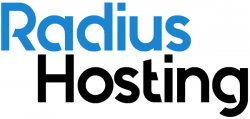What is SSL and Why Every Website Needs HTTPS in 2025
In the digital landscape of 2025, running a website without HTTPS is like leaving the front door of your brick-and-mortar store unlocked overnight. It sends a clear message to visitors and search engines: 'We may not be secure.' For any serious website owner, developer, or online business, this is no longer an option—it's a fundamental requirement. This guide will demystify SSL, explain why it's critical for SEO and visitor trust, and show you how to secure your site today, often for free.
So, What Exactly is an SSL Certificate?
Let's break it down without the complex jargon. Think of an SSL certificate as a digital passport for your website. SSL stands for Secure Sockets Layer. It’s a tiny data file that, when installed on your web server, enables a secure, encrypted connection between the server (where your website lives) and a user's browser (like Chrome, Firefox, or Safari).

This encryption scrambles the data being transferred, making it unreadable to anyone trying to intercept it. Imagine sending a valuable package. Without SSL, you're sending it in a clear box for anyone to see inside. With SSL, you're placing it in a locked, tamper-proof safe that only the recipient has the key to.
When a website is secured by an SSL certificate, two things happen:
- The website's address changes from
http://tohttps://. That 's' stands for 'secure'. - A padlock icon appears in the browser's address bar, visually signaling to visitors that the connection is safe.
This entire system is known as HTTPS (Hypertext Transfer Protocol Secure), and it's the new standard for the web.
Why Google Chrome Flags Sites Without HTTPS
For years, Google has been on a mission to make the web a safer place. A huge part of that initiative is encouraging every website to adopt HTTPS. In 2018, Google Chrome, the world's most popular browser, began explicitly marking all non-HTTPS sites as 'Not Secure.'
Why the aggressive push? Because any data exchanged on an HTTP site is sent in plain text. This includes:
- Login credentials (usernames and passwords)
- Contact form submissions (names, emails, phone numbers)
- Payment information (credit card details)
- Even the specific pages a user visits on your site
Without encryption, this information is vulnerable to 'man-in-the-middle' attacks, where a hacker can eavesdrop on the connection and steal sensitive data. By flagging these sites, Google Chrome protects its users and pressures webmasters to upgrade their security. It's no longer just about e-commerce; if your site has a contact form, a login portal, or even just collects basic analytics, you need HTTPS to protect your visitors' privacy and your own reputation.
The Real-World Impact: How HTTPS Affects SEO and Visitor Trust
Implementing SSL is more than just a technical task; it's a strategic business decision with tangible benefits. The two most significant advantages are improved search engine rankings and increased visitor trust, which leads to higher conversions.
1. The SEO Boost from HTTPS
Google officially confirmed HTTPS as a lightweight ranking signal back in 2014. Since then, its importance has only grown. While it won't magically catapult you to the #1 spot, it's a foundational element of modern technical SEO.
- Direct Ranking Signal: All other factors being equal, a secure site will rank higher than an identical non-secure competitor.
- Improved User Metrics: The 'Not Secure' warning increases bounce rates. Visitors are more likely to leave immediately, telling Google your site provides a poor user experience. A secure site keeps users engaged, which is a powerful indirect ranking factor.
- Referral Data Integrity: When traffic passes from a secure HTTPS site to a non-secure HTTP site, the referral data can be stripped away. In your analytics, this traffic often gets mislabeled as 'Direct.' By switching to HTTPS, you get more accurate data about where your visitors are coming from, allowing you to make better marketing decisions.
2. Building Visitor Trust and Driving Conversions
Trust is the currency of the internet. The padlock icon is a universally recognized symbol of safety and professionalism. When users see it, they feel more confident sharing their information, whether it's signing up for a newsletter or making a purchase.
Consider this scenario: A potential customer is looking for a service you offer and finds two websites—yours and a competitor's. Both have great design and compelling copy. However, your competitor's site has the HTTPS padlock, while yours shows a 'Not Secure' warning. Which one do you think they will choose to contact? The answer is obvious. A lack of security creates friction and doubt, killing conversions before they even have a chance.
How to Get an SSL Certificate: Free vs. Paid Options
Years ago, SSL certificates could be expensive and complicated to install. Today, that's no longer the case. Most website owners can get a robust SSL certificate for free.
The most popular free SSL provider is Let's Encrypt, a non-profit certificate authority backed by major tech companies like Google, Meta, and Mozilla. Their mission is to encrypt 100% of the web. Let's Encrypt certificates provide the same level of encryption as most paid certificates and are perfect for blogs, portfolios, and most small to medium-sized businesses.
The easiest way to get a free SSL certificate is by choosing a web host that offers it as part of their package. A good host will provide a one-click installation process, making it incredibly simple. Here’s a look at top hosts that provide free SSL and cater to different needs:
Top Hosting Providers with Free SSL Certificates
1. For Beginners and Small Businesses: Hostinger
If you're looking for the most affordable hosting without sacrificing essential features, Hostinger is a top contender. They offer unlimited free Let's Encrypt SSL certificates with all their shared hosting plans. Their hPanel control panel makes it incredibly easy to activate SSL for your domain and any subdomains with just a single click. This makes them one of the best hosting for small business owners who want a secure, reliable platform without a steep learning curve or high cost.
Hostinger
2. For Growing Websites Needing Speed: SiteGround
SiteGround is renowned for its exceptional customer support and focus on performance. They offer a premium hosting experience with a strong emphasis on security. Like Hostinger, they provide free Let's Encrypt SSL certificates that are automatically installed and renewed for you. Where SiteGround excels is in its combination of fast website hosting and proactive security monitoring. Their platform is built on Google Cloud infrastructure, ensuring excellent site speed and reliability, which are crucial for SEO and user experience.
SiteGround
3. For High-Traffic and E-commerce Sites: Kinsta
For businesses where performance is non-negotiable, a managed WordPress host like Kinsta is the gold standard. While it's a premium option, Kinsta provides unparalleled site speed, scalability, and security. They offer free SSL certificates via Cloudflare integration, which not only encrypts your site but also provides a suite of performance and security enhancements, including a firewall and DDoS protection. For a serious online store or a high-traffic blog, the investment in a managed host like Kinsta pays for itself in reliability, security, and peace of mind.
Kinsta
Your Action Plan for a Secure 2025
The debate is over: HTTPS is the standard. It’s a critical component of your website's foundation, impacting everything from search engine visibility to customer trust and conversion rates.
Don't let a 'Not Secure' warning undermine your hard work. Take a moment right now to look at your website's address bar. Do you see the padlock? If not, your first step is to log into your hosting control panel or contact your provider's support team. In most cases, enabling your free SSL certificate takes only a few minutes.
Is your website secure? Share your thoughts or questions about website security in the comments below. Let's work together to build a safer, more trustworthy web for everyone!



















